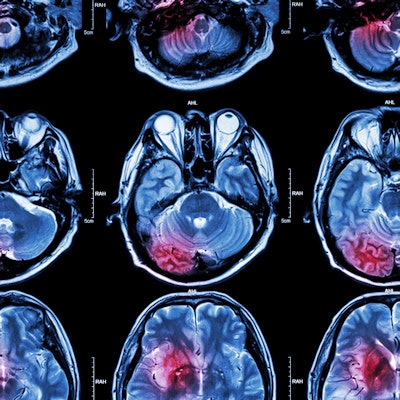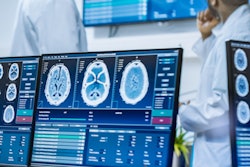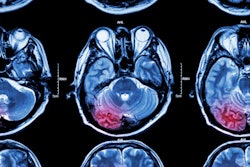
Using a rapid MRI protocol in the emergency department (ED) with people suspected of acute ischemic stroke reduces healthcare costs and the length of time patients are hospitalized, researchers wrote in a study published June 14 in the Neuroradiology Journal.
The study results suggest that, even though MRI is a more expensive test than CT for acute ischemic stroke (AIS) assessment, it could be an effective tool, wrote a group led by Dr. Adam de Havenon of Yale University in New Haven, CT.
"The cost of an MRI can be up to two-fold higher than a CT, but MRI's superior sensitivity and specificity for AIS introduce the possibility that MRI in the emergency department (ED) evaluation of AIS may reduce the total cost of care and length of stay as a result of more timely and accurate diagnosis," the authors noted.
Short MRI protocols are increasingly being used to diagnose acute ischemic stroke, the team explained. But whether abbreviated MRI protocols also improve metrics such as healthcare costs and hospital length of stay in these patients hasn't been explored.
De Havenon and colleagues conducted a study that included 408 patients who presented in the ED for suspected stroke. Of these, 257 presented between January 2012 and September 2015 and underwent CT perfusion exams, while 151 presented between October 2015 and May 2018 and underwent rapid MRI studies (8-minute exams that consisted of diffusion-weighted, gradient recalled echo T2-weighted, and fluid-attenuated inversion recovery sequences).
The team evaluated cost from a healthcare system rather than a payer perspective. And in addition to imaging costs, the group assessed total encounter, laboratory, pharmacy, supplies, hospital length of stay, and ED length of stay expenses. Of the 408 patients included in the study, 47.3% were diagnosed with stroke. Nonstroke diagnoses included migraine, seizure, transient ischemic attack, and metabolic/infectious conditions.
The team found that the rapid MRI protocol reduced total direct costs by 18.7% and hospital length of stay by 17%, without a dramatic shift in ED length of stay.
| Effect of short MRI protocol on stroke diagnosis in the ED | |||
| Measure | CT perfusion cohort | Short MRI cohort | p-value |
| Hospital length of stay in days | 3.5 | 1.9 | <0.001 |
| ED length of stay in minutes | 206.2 | 234 | 0.026 |
The study results are preliminary, but they show promise, according to the group.
"While the results of this analysis are preliminary due to several limitations ... these findings provide evidence of the utility of a rapid MRI protocol in the acute evaluation of patients suspected of having AIS by reducing cost and length of stay, warranting additional prospective research," the authors concluded.



















